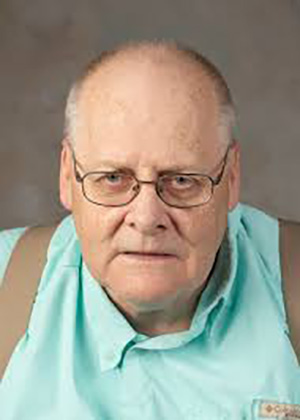OPINION —
Dear Dad,
You left us at age 53, suddenly and too young. Now, 50 years after that day (Nov. 28, 1972) there is a special title for those born between 1901 and 1927. You are part of the Greatest Generation. Most of the people of that period are long gone; but kin at least know their late relatives were part of a dynamic demographic.
Faced with the Great Depression, World War II and other challenges, members of this large cohort met these crises but did not lose their grit, perspective or optimism. The term was popularized in a 1998 book by Tom Brokaw, the TV newscaster. Your generation is described as “driven, patriotic, team-players.” Dad, you died before most of your generation, but now there are fewer than 100,000 still alive.
Like many people of my own generation, I don’t usually visit relatives and friends’ graves, maybe once or twice after they are interred. The deceased quickly move on to their afterlife, whether in heaven, purgatory or hell. Also, as I have not lived in the city where you are buried for many years, I don’t get many chances to visit your final home. I regret that.
In the abbreviated life you had before leaving us, you had a successful life as an Army airplane mechanic, a civilian electrician, active in local politics, married and the father of four. Yet your tragic death devasted us. It took me not months, but a full year to recover. That was partly because both of my grandfathers died before I was born; your death was made worse by their absence. I spent a lot of time alone, grieving.
What did you miss, Dad? In the 1970s, the near catastrophe of the Three Mile Island nuclear meltdown. In the 1980s, creation of the first personal computer. In the 1990s, the Oklahoma City Bombing, killing 168. In the 2000s, the 9/11 tragedy. Yet, our lives are better because of innovations, such as safer cars and better medical resources.
You missed two weddings and the deaths of Mom, son Larry, daughter Ann and all four of your own siblings. You were not around to see, after 86 years, the Boston Red Sox become the World Series Champions, in 2004. You were not in the audience either when I graduated from a college and two universities. But I know you were proud and with me in spirit.
Dad, you made us proud when you ran for Model Cities representative in 1967. I recall going door-to-door on a Sunday in the snow and freezing rain! That introduced me to face-to-face politics, and you won (five out of eight candidates — only the top six advanced). That showed me the importance of regular citizens having a role in politics and society.
“After 1964, numerous individuals have attempted to examine to what extent the United States has been successful in the War on Poverty,” said a Borgen Project publication on human rights (2014). “Many, including President Reagan, took a negative approach declaring that America has lost, and poverty has won. But average incomes among the poorest fifth of Americans rose by more than 75 percent, including adjustments for inflation and the drop in household size.”
It’s true — evaluations have identifiable failures and successes in Model Cities, but new sidewalks and housing programs did arise because of your participation. At age 11 or 12, I was happy for you. You helped improve our neighborhood, and we appreciate that. But your use of a new favorite word — “iota” — was grating sometimes. (Iota: an extremely small amount.)
Dad, the respectful and bipartisan politics you experienced after the war is rare now. Democrats and Republicans not only go at loggerheads during campaigns, which continues while legislating. There is too much “outside” money in campaigns, producing false and unflattering views. Television, radio and social media (a new type of communication since 1972) have too much influence. They focus on sensationalism and not on important issues.
Holden Caulfield, the 16-year-old lead of “The Catcher in the Rye,” ends the book in an optimistic tone. He says, “About all I know is, I sort of miss everybody I talked about. I think I even miss that darn Maurice (a dastardly doorman). It’s funny. Don’t ever tell anybody anything. If you do, you start missing everybody.”
As a 16-year-old when my father died, I agree in bringing forgotten people back from memory. Members of the Greatest Generation still alive are 25,000 less than Lee County’s population. I am a Baby Boomer (born in 1956), part of a somewhat rowdy but public-spirited bunch. My link to your generation, Dad, is gone 50 years. But my love for you has not diminished “one iota.”
— Greg
Greg Markley moved to Lee County in 1996. He has a master’s in education from AUM and a master’s in history from Auburn University. He taught politics as an adjunct in Georgia and Alabama. An award-winning writer in the Army and civilian life, he has contributed to The Observer since 2011. He writes on politics, education and books. gm.markley@charter.net.

